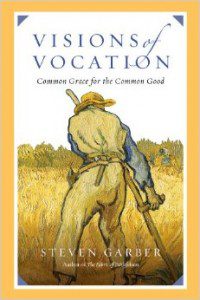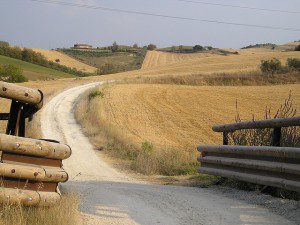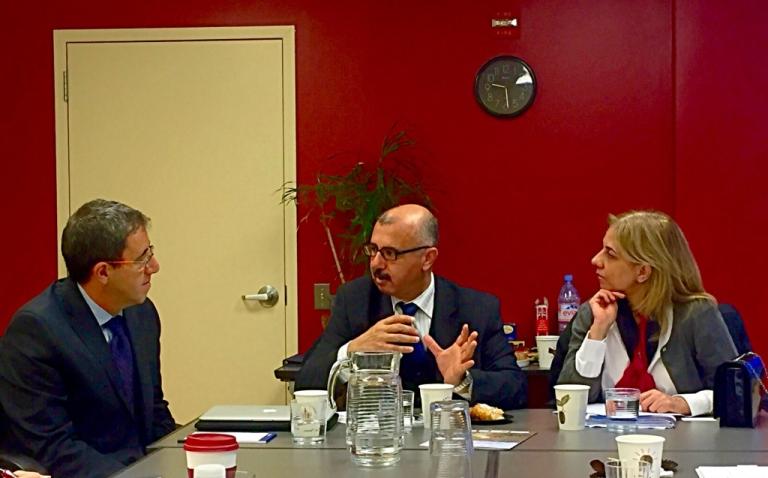 This excerpt from Steve Garber’s book Visions of Vocation is reprinted here with the kind permission of InterVarsity Press. Stay tuned as we continue to occasionally publish excerpts from the book here at Visions of Vocation the blog. And get the book from IVP at this link!
This excerpt from Steve Garber’s book Visions of Vocation is reprinted here with the kind permission of InterVarsity Press. Stay tuned as we continue to occasionally publish excerpts from the book here at Visions of Vocation the blog. And get the book from IVP at this link!
[Steve writes about some of his friends:] In the relationships and responsibilities of common life, they see themselves as implicated in the way the world is and ought to be. They see themselves as having vocations that call them into life, into the world—into a way of knowing that implicates them, for love’s sake. And in the unfolding of my life, living where I have lived, working where I have worked, I have met some of those people.
St. Augustine argued that the question What do you love? is the most important of all questions . While other questions matter, it is the question of our loves that goes to the heart of who we are. What David Franz loves is Shafter, California, with all its local history and hopes. The son, grandson and great-grandson of farmers, he has the soil of the San Joaquin Valley in his soul. He is a descendent of Mennonite immigrants who wanted to worship and work together in America as they had in Russia and found the fertile land of California a good place to make their home. David grew up loving where he was from, both the people and the place.
Shafter is also my hometown, and I grew up going to school with his uncles and aunts, and his parents. I first met David when I spoke on my work with the American Studies Program in Washington to people I had known most of my life back in Shafter. He was in high school at the time but later told me that when he heard about the life of our little community of scholarship and service, of junior and senior members learning together, he determined that someday he would join us. And he did.
Most of life is only understood in retrospect. While he flourished in every important way that semester, it was not until a few years later that I began to understand what those months had meant to him. He was awakened to learning, and began to see what he wanted to learn about and what he wanted to do with his learning. After he returned to California to finish school, I began to write recommendations for him to study in all sorts of interesting places. A summer at Notre Dame. A few months in Switzerland. A year on the Chesapeake Bay. And finally a graduate program at the University of Virginia.
 With an ever-deepening sense of vocation , he began taking up the questions that have become his, the interdisciplinary nexus of sociology and economics, but with a great interest in what the questions in those disciplines mean for ordinary people in ordinary places. A first year grew into many years of study and finally a PhD in a good department from a good university. The doorways of the academic world were open to him. One day he and I were having breakfast in Charlottesville. He had finished his degree the previous year, and he had been given a year-long fellowship to turn his dissertation into a book. We talked about what would come next, and with a twinkle in his eye, he told me that was thinking of going home to Shafter.
With an ever-deepening sense of vocation , he began taking up the questions that have become his, the interdisciplinary nexus of sociology and economics, but with a great interest in what the questions in those disciplines mean for ordinary people in ordinary places. A first year grew into many years of study and finally a PhD in a good department from a good university. The doorways of the academic world were open to him. One day he and I were having breakfast in Charlottesville. He had finished his degree the previous year, and he had been given a year-long fellowship to turn his dissertation into a book. We talked about what would come next, and with a twinkle in his eye, he told me that was thinking of going home to Shafter.
I am sure my eyes lit up with perplexed pleasure as I wondered, To do what? And he told me of an unusual conversation with the city manager, someone whom I had known forty years earlier, who had a vision for the flourishing of his city that could use David’s gifts and passions to help bring it about. Over time the idea began to have legs, and to the surprise of colleagues in the academy, with his wife, Charis , and young family he moved back to the small farming community where generations of his family had made their home. His work there is focused on the renewal of education in the local schools, bringing the years of his study about people and places through the lenses of his disciplines and making that insight useful to the people and place of Shafter.
There is an echo of Berry himself in David’s story, if we have ears to hear. From a farming family and community, off to higher education at different levels, with wonderful opportunities open to explore the world of work with his studies complete— and in and through it all an unsettled sense that “I am from somewhere and from some people, that my relationships to that place and those people give me a responsibility to and for them, and therefore my vocation will be found with them and among them.”
There is a longer story here, as David is only stepping into this vision. There are difficulties in a small town, as there are in a large city. History, geography, politics, economics , race and class— always and everywhere these dynamics create complexity. What will happen over time is a story that is yet to be told. What is sure is that he loves where he is from and why he is from there. Because that is true, he wants honest coherence between his education and his vocation, so that what he has learned will be for the sake of where he has lived. That is a good life for anyone, anywhere.
Image: Roberto La Forgia, “The Way.”
Taken from Visions of Vocation by Steven Garber. Copyright (c) 2014 by Steven Garber. Used by permission of InterVarsity Press, P.O. Box 1400, Downers Grove, IL 60515-1426. www.ivpress.com











